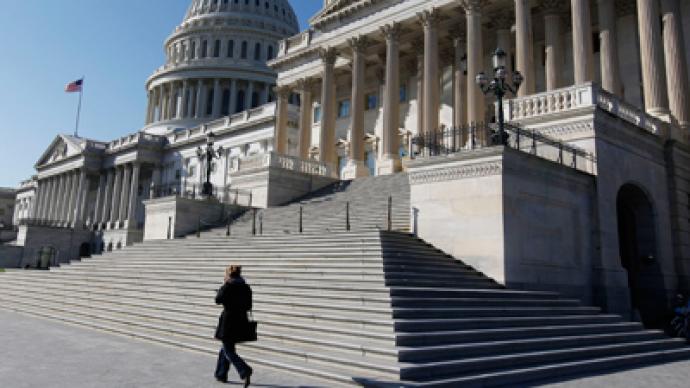Senate kills Pentagon's 'alternative CIA'

The US Senate Armed Services Committee has halted the Pentagon’s request to send overseas more spies from the DoD’s Defense Intelligence Agency.
In a surprise addition made last week to the National Defense Authorization Act for Fiscal Year 2013, or NDAA, members of the Senate added a provision to the annual Pentagon spending bill that disrupts recently announced plans to put clandestine officers from the Department of Defense’s DIA overseas.Earlier this month, the Washington Post reported that the Pentagon planned to send “hundreds of additional spies” abroad and in doing so would establish an espionage network that would rival in size the CIA. In a harshly worded explanation drafted in Washington last week, though, the Senate Armed Services Committee suggests that the Pentagon has a lot to get right before a request like this can be cleared by Congress.The DoD “needs to demonstrate that it can improve the management of clandestine HUMINT [Defense Human Intelligence] before undertaking any further expansion,” the Senate Armed Services Committee wrote in drafting S. 3254 of next year’s NDAA. The measure was approved on Capitol Hill only a few days following the Post’s initial report.The Senate Armed Services Committee “appreciates the fact” that both the undersecretary of defense for intelligence and the director of the DIA “intend to make reforms” within the Pentagon that would “correct longstanding problems,” but lawmakers cite a list of ongoing issues that need to be resolved before their request can be approved.“These problems include inefficient utilization of personnel trained at significant expense to conduct clandestine HUMINT; poor or non-existent career management for trained HUMINT personnel; cover challenges; and unproductive deployment locations,” write the Senate members.“Multiple studies since the end of the Cold War document these deficiencies,” the Senate continues, “and they led the Commission on the Roles and Capabilities of the United States Intelligence Community, chaired by two former Secretaries of Defense, to recommend transferring to the Central Intelligence Agency (CIA) all responsibilities for the clandestine recruitment of human sources, utilizing military personnel on detail from the DOD as necessary.”Additionally, the committee cites a surge in CIA staffers since the terrorist attacks of September 11, 2001 and even growth within the Department of Defense as enough expansion already within the intelligence community.“If DOD is able to utilize existing resources much more effectively, the case could be made that investment in this area could decline, rather than remain steady or grow, to assist the Department in managing its fiscal and personnel challenges,” the Senate Committee writes.According to the Post, the DIA currently has around 500 undercover agents participating in spy missions overseas, and that roster could have expanded to upwards of 1,000 by 2018 had the Senate Armed Services Committee not refused funding for additional officers.














